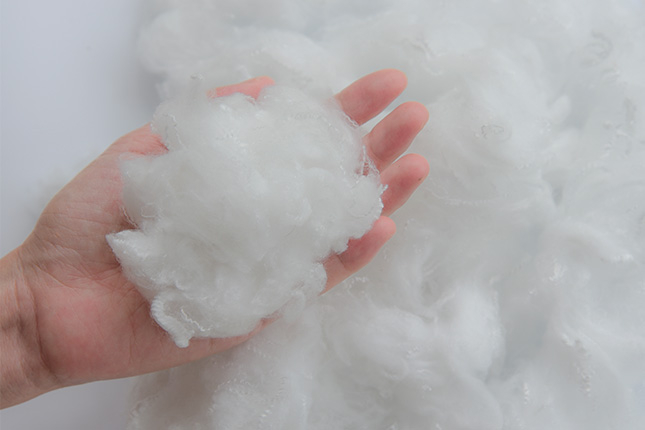
Teijin Frontier develops chemical recycling technology for polyester fibers
YarnsandFibers News Bureau 2022-05-24 17:05:08 – JapanJapan’s Teijin Frontier Co has developed a recycling process that uses a novel depolymerisation catalyst to recover coloured polyester fibers without compromising their quality as compared to those generated from petroleum-derived raw materials.
Teijin's method is touted to provide recycled materials that are equal to petroleum-derived polyester raw materials. Spent polyester is chemically degraded and purified back into BHET intermediate raw material before being repolymerised into polyester using a novel depolymerisation catalyst for the standard bis (2-hydroxyethyl) terephthalate (BHET) technique.
According to the company, the production method is easier than employing dimethyl terephthalate (DMT) and ethylene glycol in a transesterification reaction, therefore recycling is accomplished with less energy usage. It goes on to say that the new method also reuses resources including wastewater, waste liquid, and depolymerisation catalysts.
This month, Teijin Frontier will open a prototype facility at its Matsuyama Plant and begin verification testing. It will also continue to develop recycling methods in order to increase the quality of recycled polyester raw materials while reducing environmental impact. Teijin Frontier is working with partner firms and consortiums in Japan and throughout the world to build a mechanism for sustainable fiber-to-fiber recycling of polyester in order to realize a sustainable value chain for a circular economy.
When compared to material recycling, which melts and moulds old items such as polyethylene terephthalate (PET) bottles, DMT-based chemical recycling results in less quality degradation due to recycling, but it consumes a lot of energy. The BHET method is frequently used when recycling colorless and transparent PET bottles as new PET bottles, and its energy consumption is lower than the DMT method; however, there were difficulties in producing high-quality recycled polyester raw material because foreign substances, such as dyes used for coloured polyester fibers, could not be completely removed, resulting in discolored recycled raw material.
Teijin Frontier is working to increase its environmental value through eco-friendly plant management and the creation of greener materials and products for uses ranging from garments to industrial materials, driven by its Think Eco environmental project.
Market Intelligence
Ask for free sample Report

experience
Customer Base
dedicated team
Countries Served Worldwide









